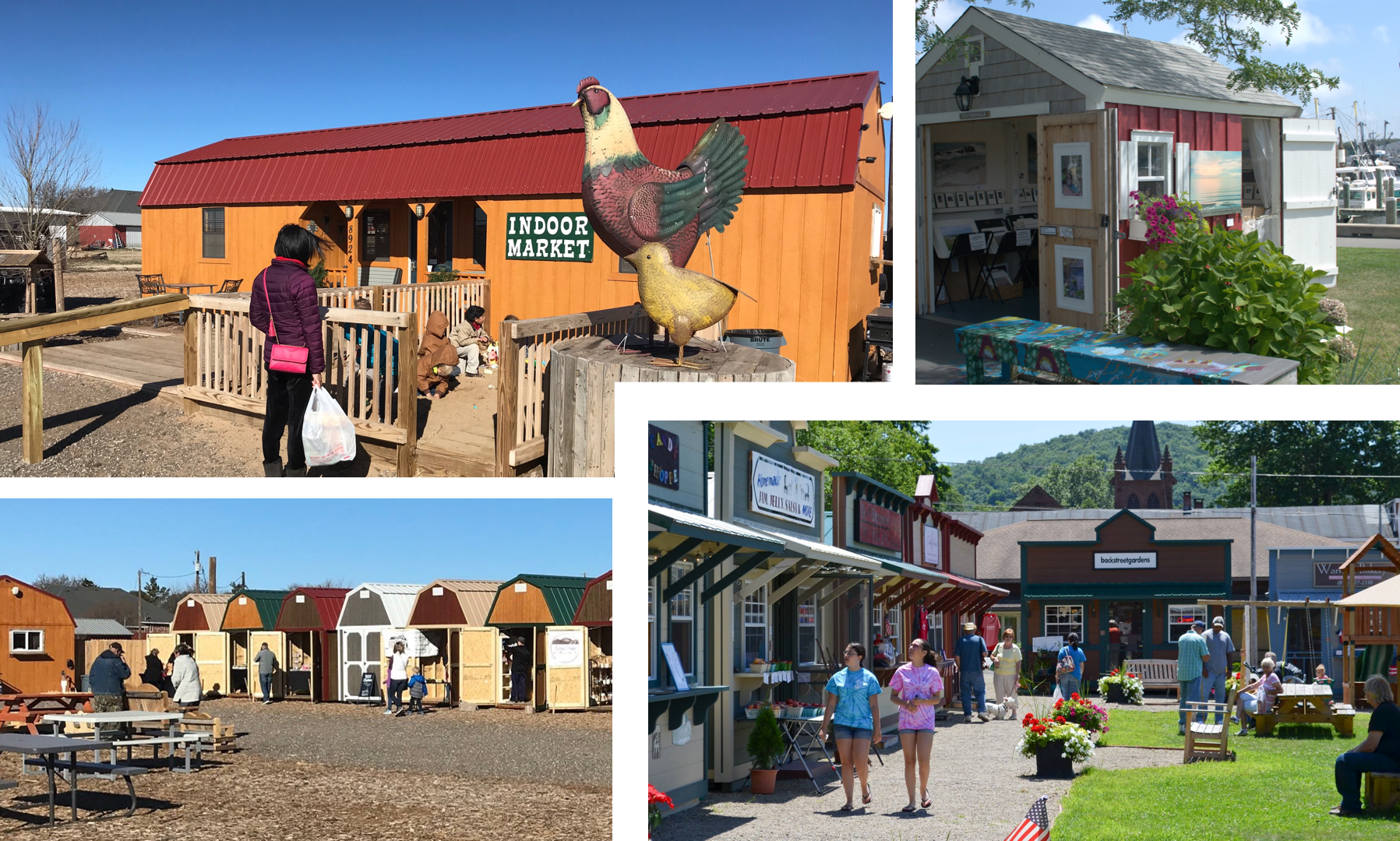Getting shed markets past strict zoning
At the CSG East conference I was asked by a Canadian legislator how communities could start a market village using simple garden sheds when faced with strict regulations that seem to make it impossible. It’s not just Canada. This wasn’t the first time someone pointed out that shed businesses don’t fit all the rules, so I had some answers ready.
Read the rules yourself
Don’t take anyone’s word for what the rules are. For local rules, sometimes we remember the many discussions by the council, the long process they went through and that makes us think they passed a specific rule. Are you absolutely sure it passed?
Because when I was a city administrator, I sat down and read meeting minutes going back years. I found out some rules that city staff thought had passed long ago, actually didn’t get passed. They weren’t really rules at all, legally. It pays to read the rules and meeting minutes yourself, or get a legal-minded friend to help.
Codes change over time. The regulation an official remembers from previous enforcement may no longer be in force. It never hurts to check first.
Be just legal enough
Being “just legal enough” is not about skirting the rules, but understanding them inside and out.
One town had an old “no selling food from vehicles on public streets” rule that was stopping food trucks. People found several ways to be just legal enough.
- Not “on public streets” so they parked on parking lots (including at the county courthouse!)
- Not “from vehicles” so how about pushcarts? Or if we sell from tables outside of the trucks?
- Not “selling” so technically we could get a sponsor to pay so we can give the food away
One city I read about allowed a sidewalk stall selling fresh bread because it was “an art performance” and that was just legal enough.
Apply some of that creative thinking to your shed market idea.
- See if a different location matters, maybe moving one block away would be easier, zoning-wise.
- What if the sheds aren’t permanent structures? Or if they are permanent, would that help?
- Could they be tents instead of sheds? Or popup canopies? Canopies with walls?
- What if we moved the sheds indoors, in an empty building? Or just businesses in booths in the empty building, temporarily?
- Can the tiny businesses be on the empty lot, each with a shed used as storage but not as selling space?
- Maybe if the sheds are owned by a nonprofit or a governmental department, that makes a difference.
Read the rules and question each phrase to find one qualifier you can use to your advantage.
You might also ask for a second opinion from someone outside your local area. How are different places handling interpretation and enforcement of provincial or state rules? That might give you a little leverage to ask for similar lenient treatment.
Start with an offer they can’t refuse
If you can’t find a way to come into compliance at first, start with kids or nonprofits. People may be more likely to tolerate the same project if it’s to benefit a cause, or it’s run by a nonprofit, or if it’s a kids entrepreneurship project.
If you’re worried someone will say no to your temporary shed businesses, start out with one shed for the Friends of the Library to sell used books to support the kids’ afterschool reading program. If they’ll allow that, it’s easier to move on to allowing any kind of business in a shed.

Ask for more time
If you find you have to comply, ask to comply in stages. Ask if you can start with stage one that’s only partially compliant in order to test the idea. (“Let us do pop-up canopies just for now, and we’ll work toward permanent structures soon.”) Then you can round up the resources you need to be more compliant in stage two, and maybe even stage three.
Discuss with officials which rules are the highest safety priorities and absolutely need to be first. Then agree on ones that can happen at a later stage.
Change the rules
All rules are changeable. If one council or group could adopt a rule, the current group can change it.
Even code can be changed. Look into alternate codes like adaptive reuse, historic or green building codes. They can be more forgiving of older buildings and other unusual structures.
Even at the state or provincial level, you can work toward helpful changes. Your councils of government and municipal leagues can play a key role in sharing examples and leading discussion across geographic boundaries.
Remember the “ask to comply in stages” idea? Permission to comply in stages can be adopted as a guiding principle by the local governing board. If you can’t get them to change the code or rule, then see if they’ll consider adopting the principle of complying in stages.
“Against the Rules” for watch parties or presentations
Deb Brown and I created a video on what to do when “they” say your idea is against the rules. It’s available for all SaveYour.Town members to view or set up watch parties in your community. You just might change some rules!
If you’d like us to lead a watch party on “Against the Rules” for your community or region, just hit reply and we’ll work with you on setting one up.
If you have an upcoming event where a presentation and group discussion on “Against the Rules” would be a good fit, reply and let us know dates. We’ll be glad to work with you if at all possible.
Header photos courtesy of Forest County Business Alliance and Austin Moore, and CC by Jeffrey Grandy.

